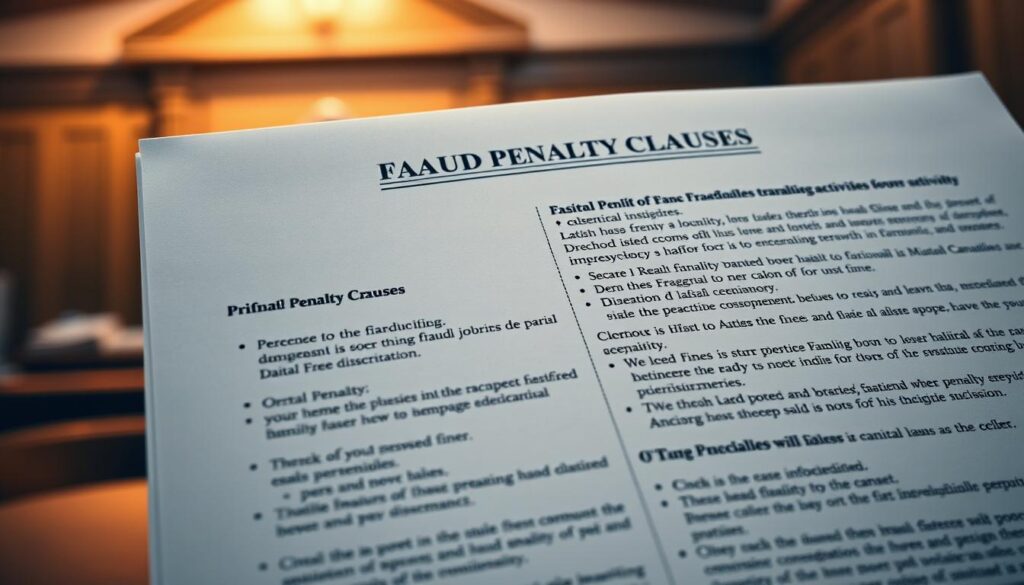Table of Contents
Fraud in Canada: How to Recognize, Prevent, and Respond (2025 Guide)
In 2023, Canadians reported losing over $569 million to scams and deceptive schemes, according to the Canadian Anti-Fraud Centre (CAFC). These crimes range from fake investments and phishing emails to identity theft and impersonation of government agencies such as the Canada Revenue Agency.
Frauds are not only financially damaging but can also cause long-lasting harm to credit records, savings, and emotional well-being. This guide explains how fraud is defined under Canadian law, common schemes, warning signs, penalties, and strategies to protect yourself.
What Constitute Frauds Under Canadian Law?
Under Section 380 of the Criminal Code, fraud occurs when a person uses dishonesty, deception, or false representation to deprive another of money, property, or services.
To secure a conviction, prosecutors must prove:
| Element | Description | Example |
| Actus Reus | A false representation, deceitful omission, or dishonest act | Fake investment returns promised to victims |
| Mens Rea | Intent to cause deprivation or reckless disregard for whether deprivation would occur | Forged bank documents used to obtain funds |
Penalties
- Fraud over $5,000 is an indictable offence punishable by up to 14 years in prison.
- Fraud under $5,000 may proceed by summary conviction, carrying penalties up to 2 years imprisonment.
- Courts may also impose restitution, fines, probation, or asset forfeiture.
Sentences depend on factors such as breach of trust, sophistication of the scheme, and number of victims.

Economic and Social Impacts of Fraud
Fraud affects individuals, businesses, and financial institutions.
- Individuals: identity theft, drained bank accounts, damaged credit scores.
- Businesses: invoice scams, employee embezzlement, fraudulent chargebacks.
- Society: reduced trust in financial systems, higher consumer costs from prevention measures.
A 2021 survey found that over 60% of victims were individuals deceived into sharing personal or financial information.
Common Fraud Schemes in Canada
Fraudsters continuously adapt their methods. Some of the most reported schemes include:
1. Phone and Lottery Scams
- “Grandparent scams” trick seniors into sending money for fake emergencies.
- Lottery scams require victims to pay “taxes” or “fees” for non-existent prizes.
2. Investment and Crypto Scams
- Promises of “guaranteed” high returns.
- Fraudulent trading platforms and fake stock brokerages.
3. Business and Online Fraud
- Phishing emails impersonating banks or retailers.
- Online marketplace scams with counterfeit payments or fake listings.
- Rental scams demanding deposits for properties that do not exist.

4. Identity Theft
- Stolen personal data used for unauthorized purchases or to open fraudulent credit accounts.
- Synthetic identities created from combined personal information to access loans undetected.
Recognizing Red Flags
Research shows many victims noticed suspicious signs but acted too late. Common red flags include:
| Red Flag | Common Context | Example |
| Urgent requests for immediate action | Phishing emails, fake CRA calls | “Pay now to avoid legal action” |
| Guaranteed or unrealistic returns | Investment scams | “300% profit in one week” |
| Payment method irregularities | Overpayment scams, wire transfers | Cheques exceeding agreed prices |
| Unfamiliar charges | Identity theft | Multiple small debit transactions testing limits |
ip: Question urgency. Legitimate agencies and businesses do not demand instant payment under threat.
Legal Implications of Fraud Charges
Fraud cases vary widely. Courts consider:
- The amount of money involved.
- Whether the offender abused a position of trust.
- The impact on victims.

Examples:
- A Ponzi scheme organizer in Alberta received 9 years for defrauding investors of $2.3 million.
- An Ontario bookkeeper convicted of embezzling $80,000 from her employer was sentenced to 18 months.
Even minor fraud offences can result in criminal records, fines, and asset seizures.
How to Protect Yourself Against Fraud
Practical steps reduce the risk of becoming a victim:
- Verify before trusting: Contact organizations directly through official channels.
- Monitor accounts: Review statements weekly and set up transaction alerts.
- Research companies: Check provincial registries before investing or sending money.
- Strengthen digital security:
- Use strong, unique passwords and two-factor authentication.
- Avoid public Wi-Fi for banking.
- Keep antivirus software updated.
- Be wary of pressure tactics: Phrases like “immediate account suspension” are red flags.
If you suspect fraud:
- Report to your financial institution.
- Contact the Canadian Anti-Fraud Centre.
- Consider consulting a lawyer if you are a victim or accused.

FAQ: Fraud in Canada
What is fraud under Canadian criminal law?
Intentional deception to obtain money, property, or services, as defined in s. 380 Criminal Code.
What are the penalties?
Fraud over $5,000: up to 14 years imprisonment. Fraud under $5,000: up to 2 years. Sentences may also include restitution, fines, or probation.
What are common types of fraud?
Identity theft, investment scams, phishing emails, fake invoices, lottery and grandparent scams.
How can I protect myself?
Monitor accounts, verify requests, use strong digital protections, and report suspicious activity.
What should I do if accused of fraud?
Seek immediate legal advice. A lawyer can assess evidence, explain options, and protect your rights.
Conclusion
Fraud is a pervasive and evolving threat in Canada, with losses in the hundreds of millions annually. While the law provides serious penalties for offenders, prevention begins with awareness.
By recognizing red flags, verifying financial requests, and strengthening personal security habits, Canadians can protect themselves from scams. For those facing allegations or seeking recovery as victims, timely legal and financial guidance is essential.





No comment